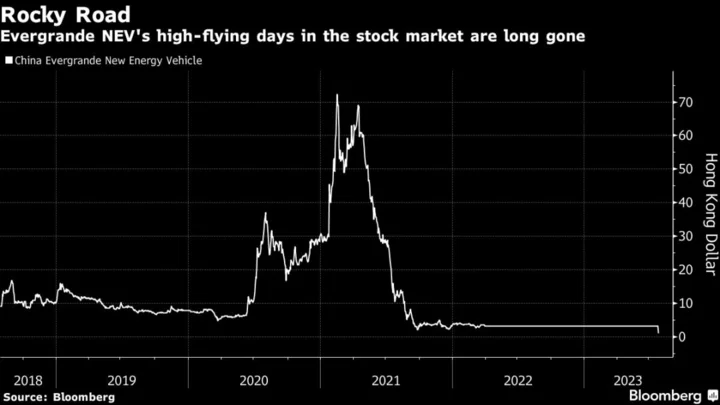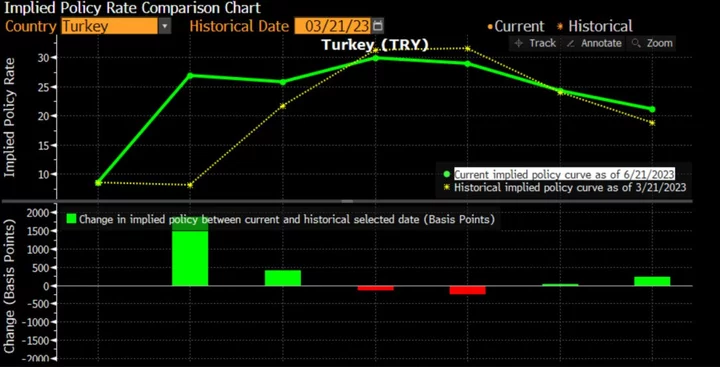China’s sovereign wealth fund increased its stake in the nation’s biggest banks for the first time since 2015, stoking speculation that authorities will intensify efforts to prop up its sinking stock market.
State-owned Central Huijin Investment Ltd. bought about $65 million worth of shares in Bank of China Ltd., Agricultural Bank of China Ltd., China Construction Bank Corp. and Industrial and Commercial Bank of China Ltd., according to filings Wednesday. Huijin, a unit of the $1.4 trillion China Investment Corp., plans to further increase holdings over the next six months.
A growing number of Chinese economists and hedge funds are calling on the government to directly intervene with a stabilization fund to buy stocks, a move the authorities have refrained from since the 2015 market crash. Concerns are now mounting among China’s top leadership over the trajectory of the world’s second-largest economy as a deepening property crisis and rising deflationary pressure put the growth goal of around 5% for the year at risk.
China’s benchmark CSI 300 Index has retreated more than 5% this year even as hopes of fresh economic stimulus bolstered equities Wednesday. The financial subgauge is down 1.5% in 2023, on track for a third year of losses. Previous measures to support growth and the property market have done little to lift sentiment as foreign funds kept selling.
“Central Huijin’s modest yet symbolic investments are very likely aimed at supporting share prices, which has already led to a positive market response,” Redmond Wong, a market strategist at Saxo Capital Markets in Hong Kong, said in a note. “This move, reminiscent of its actions during the 2015 Chinese equity market turmoil, signifies the government’s desire to maintain market stability.”
China’s top three securities newspapers all ran front-page reports Thursday about the bank-stock purchases, saying the move is a significant measure to prop up the equity market and boost investor confidence.
“Huijin’s increase in the holdings sends a clear positive signal and is an important measure to activate the capital market,” Shanghai Securities News said. “It is conducive to boosting market confidence. After a long period of correction, the investment value of A-shares is gradually emerging and is expected to gradually bottom out.”
The sovereign wealth fund first dipped its toe in the secondary market in 2008 by purchasing shares of the nation’s three largest lenders at the height of the global financial crisis, and made similar purchases in the following years until 2015. Shares mostly rallied after the moves.
Central Huijin holds stakes in 19 financial institutions including banks and brokerages, according to its website.
Huijin’s move comes amid an ongoing exodus of foreign funds from the world’s second largest equity market, with domestic shares ranking among the worst-performing globally this year. Among its package of measures to sooth investor nerves, Chinese authorities have cut handling fees for stock transactions and stamp duty, and are considering relaxing the rules that cap foreign ownership in domestic publicly traded firms, people familiar with the matter have said.
The securities regulator said in September it will slow the pace of IPOs and also restricted share sales by top stakeholders at firms whose stock prices have fallen below IPO levels or net asset levels.
“The national team buying is a much bigger deal to the market and to confidence than the trove of measures including lowering the stamp duty in August,” said Li Fuwen, fund manager at Guangdong Value Forest Private Securities Investment Management. “What the market is in desperate want of now is fresh source of funds, and even if it is just a few hundred million a day, this is the way to salvage confidence.”
--With assistance from Charlie Zhu, George Lei, Winnie Hsu, Zheng Li and Richard Frost.









